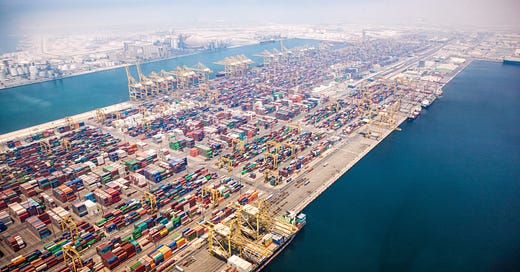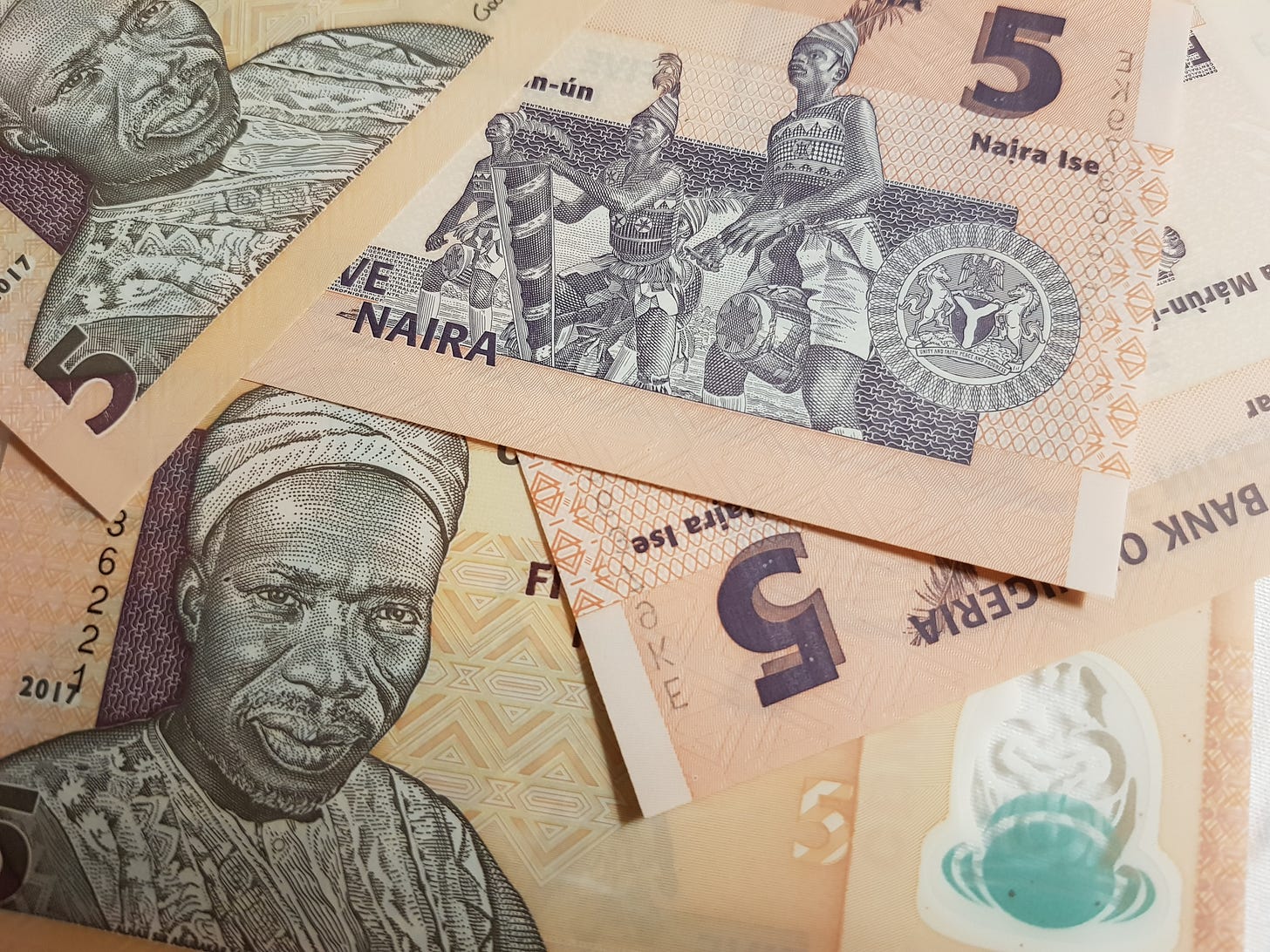Emerging Markets Daily - June 15
DP World Mulls Stake Sale in Jebel Ali Free Zone, Tech Investors and China, Nigeria's Cratering Economy, El Salvador's Bitcoin Venture, Singapore's Newest Unicorn
The Top 5 Emerging Markets Stories from Global Media - June 15
DP World is Said to Weigh Sale of Stake in Jebel Ali Free Zone
Gulf Business / Bloomberg
“DP World is considering offering international investors a chance to buy into the Jebel Ali Free Zone, a prized asset that helped transform Dubai into a hub of global trade, as it looks for ways to cut its debt pile.”
“…The Jebel Ali Free Zone attracts almost a quarter of foreign direct investment into Dubai, with more than 8,000 companies having set up operations in the trade zone since its foundation in the mid 1980s, according to its website. Dubai saw Dhs24.7bn ($6.7bn) of foreign direct investment in 2020, according to government figures.”
“…Dubai took DP World private in early 2020 to alleviate its debt burden and avoid a repeat of the economic crisis that forced a bailout in 2009. In exploring the possible sale of a stake in Jebel Ali Free Zone, Dubai is also joining regional neighbours Abu Dhabi and Saudi Arabia in looking to open up to overseas investors by offering the chance to buy into state assets.” Archana Narayanan, Dinesh Nair, and Nicolas Parasie report
What Tech Investors are Looking for in China
Financial Times
“After two years of struggling to raise money, Chinese start-ups are seeing interest from venture capitalists pick up again, as the boom in the US crosses over the pacific.”
“‘The capital winter is over, competition for deals is fierce,’ said Ming Liao of Prospect Avenue Capital. ‘You need to bring something to the table more than just cash to get into deals now.’”
“In some ways investing in China and the US is similar; both markets are large enough to foster the creation of large tech groups and Chinese investors say start-up valuations now compare with their American peers.”
“But investing in China also has its own quirks. Each new idea often sprouts a slew of copycats, and even competitive forays from the country’s tech giants. Differing culture and government regulation add to the challenges.” Ryan McMorrow reports
Nigeria’s Cratering Economy May Become Africa’s Biggest Threat
Bloomberg
“If there was ever a time Nigeria could have taken off, it was in 1999. Democracy had been restored, with its economy reopening after decades of mismanagement and plunder under military dictatorships.”
“Tomi Davies, a systems analyst, was one of thousands of Nigerians who came home to help rebuild the country. After a few years working on public-sector projects, he was offered a bag full of dollars to add ghost employees to the payroll system he was installing. When he refused, a group of men attacked him at his home in the capital, Abuja.”
“Others like him have left too, defeated by the dashed aspirations of a nation that wasn’t supposed to turn out this way. Endowed with some of the world’s biggest oil reserves, plenty of arable land and a young, tech-savvy population of 206 million that sets Africa’s music and fashion trends, Nigeria had the potential to break onto the global stage.”
“Instead, policy missteps, entrenched corruption and an over-reliance on crude oil mean that a country that makes up a quarter of the continent’s economy risks becoming its biggest problem. A dangerous cauldron of ethnic tension, youth discontent and criminality threatens to spread more poverty and violence to a region quickly falling behind the rest of the world.” Alonso Soto reports
El Salvador’s Bitcoin Beach Experiment Highlights Digital Divide
SCMP / Reuters
“The El Salvadoran beach town of El Zonte is visibly poor, with dirt roads and a faulty drainage system. But in one way, it’s ahead of the rest of the country: it has bitcoin.”
“The tropical surfing spot’s basic infrastructure offers a glimpse of the potential pitfalls to popularising bitcoin nationally for payments and savings, after Congress last Wednesday adopted the cryptocurrency as legal tender, a world first.”
“…But for Rivas, cash is king. She rarely uses bitcoin, she says, because like many in the town, her battered smartphone struggles with the payments app. When Reuters visited last week, the device was broken. Anyway, she often runs out of data on her prepaid contract.” SCMP / Reuters report
SoftBank Supercharges Singapore's Carro to Unicorn Status
Nikkei Asia
“Japan's SoftBank Group has led a $360 million Series C funding round in Singapore online car sales platform Carro, propelling the Southeast Asian startup into the ranks of unicorns -- companies with a valuation of $1 billion or more.”
“…The startup said it will use the funds to expand its retail presence across Indonesia, Thailand, Malaysia and Singapore, countries which saw significant market growth the past year.
“Carro also wants to beef up its financial services offerings by expanding beyond in-house loan financing, and will accelerate development of its artificial intelligence capabilities.”
“…ASEAN's importance to digital companies is widely recognized. The gross merchandise value of the region's internet economy is expected to grow threefold to $300 billion by 2025 from 2020, according to research by Google, Temasek and Bain & Co.” Dylan Loh reports




